Subscribe: Apple Podcasts | Google Podcasts | Spotify | Android | Stitcher | Blubrry | Email | TuneIn | RSS | More
This episode of the Crime Cafe podcast features my interview with crime writer Joel Burcat.
He writes a series of environmental thrillers that you’ll want to hear about.
Before I bring on my guest, I’ll just remind you that the Crime Cafe has two eBooks for sale: the nine book box set and the short story anthology. You can find the buy inks for both on my website, debbimack.com under the Crime Cafe link. You can also get a free copy of either book if you become a Patreon supporter. You’ll get that and much more if you support the podcast on Patreon, along with our eternal gratitude for doing so.
Check us out on Patreon: https://www.patreon.com/crimecafe
Debbi (00:54): But first, let me put in a good word for Blubrry podcasting.
I’m a Blubrry affiliate, but that’s not the only reason I’m telling you this. I’ve been using Blubrry Podcasting as my hosting service for my podcast for years and it’s one of the best decisions I ever made. They give great customer service, you’re in complete control of your own podcast, you can run it from your own website, and it just takes a lot of the work out of podcasting for me. I find for that reason that it’s a company that I can get behind 100% and say, “You should try this.” Try Blubrry. It doesn’t require a long-term contract, and it’s just a great company, period. It also has free technical support by email, video, and phone, so you can get a human being there. Isn’t that nice?
If you want to podcast, try out Blubrry. No long-term contract, excellent distribution, and great technical support, too, by email, video, and on the phone. I’ve included an affiliate link on this blog.
Download a copy of the PDF transcript of this episode here.
Debbi: Hi, everyone. My guest today is a practicing environmental lawyer and he writes environmental legal thrillers. Kind of makes sense. In any case, he has also edited legal publications, but today we’ll focus on his fiction. Although given the subject matter and being a former EPA attorney myself, I can already picture this interview spinning out of control. In any case, it has that potential. I’m pleased in any case to have with me thriller writer and environmental attorney, Joel Burcat. Hi Joel.
Joel: Hi Debbi. It’s great to be on your program.
Debbi: Well, it’s great to have you here. Thank you for coming on and thank you for waiting. I was reading your guest post and I focused in on those words, “gray area,” and I thought, boy, that’s exactly where I like to write, in those gray areas. And I always end with a kind of a bittersweet twist. I can’t seem to come up with a completely happy ending. It’s as if, okay given these laws, given this set of circumstances, here’s the best we can do. How do you come out on that? Do you think lawyers have a tendency to do this? Is it a legal thing or is it always mystery writers?
Joel: You know, it seems to me that it’s relatively easy to write a story that’s in black and white. I’m not picking on him and certainly nobody can pick on Lee Child, but Jack Reacher is always sort of a black and white kind of character. You know he’s always on the good side and that the other guy is always on the bad side. There’s no gray area in there. And with so many other writers, it’s very, very clear, not necessarily with writers, but certainly with books that they write or characters that they write, you know, that they are the good guys and that the antagonist is absolutely the bad guy. And in fact, the antagonist can be, be really, really, really bad, and then you’ve got your good guy, your hero, your the protagonist.
You know, it seems to me that it’s relatively easy to write a story that’s in black and white. I’m not picking on him and certainly nobody can pick on Lee Child, but Jack Reacher is always sort of a black and white kind of character. You know he’s always on the good side and that the other guy is always on the bad side. … And what I found in real life is that typically people aren’t like that.
And what I found in real life is that typically people aren’t like that. And I like to read about people who are struggling to do the right thing. And if you’re struggling, it means that it’s not entirely clear to you what the right thing is. And the same thing with the bad guy that the bad guy may also have good motives, he or she may have good intentions. There may be good things that they want to do, but, you know, they’re contrary to what the protagonist wants. So, I like playing in that area because I think, first of all, it’s number one more realistic, and number two, I think it presents some real moral and ethical questions that the readers have to think about and they have to decide what it is that they feel is right.
Debbi: I agree with you totally on that, all of what you’ve said, because that kind of, you know, making the villain a mustache-twirling stereotype really doesn’t work for me. And it doesn’t work in screenwriting I can tell you that. I mean, it does work in some types of work, but it’s not the kind of work that I like to watch. The kind of villains I like to watch think they’re right but do these things that aren’t helping or are really going too far, and those are the most interesting villains and the ones, you know, when you have a person trying to do the right thing, as opposed to what they’re doing, it just makes for more interesting conflict, I think. So, you write on a variety of different environmental issues. Can you talk a little about why you picked those issues?
Joel: Well, I actually write on lots of different issues and we’ll get to that in a second. But I do write on a variety of legal issues. I’ve been practicing environmental law now since 1980. So, 42 years, although I have to say that for the past several years, I’ve been 99.9% retired, and the very little that I have left of my practice is basically just occasionally getting questions from some of my colleagues or referring some business to my colleagues. So, there’s, you know, I don’t really practice any longer and my license is still in existence, but it doesn’t get much exercise these days. But you know, I know environmental issues. I’ve seen lots and lots of environmental cases like you. And many of them I felt over the years would really warrant treatment as a novel and not just necessarily the ones that I’ve worked on, but also the ones that I’ve read about and the ones that I’ve talked to other lawyers about and even little snippets, you know, can come to play in a story. So, it’s what I do is really not unlike what say Grisham does. Grisham was a trial lawyer at one time in his life. And many of his stories are based on realistic scenarios that he worked on and other writers as well, who you know. Connelly who was not a lawyer but writes THE LINCOLN LAWYER but who was a journalist who covered many, many trials.
And so you know, you see these things, you live these things, you learn something about them. You think you have some insight that you can provide that others can’t provide. And as a result of that, I really do try to use that background as much as I can. I’ve also written a story Wizkid, which has not been published which is about the 1950 Philadelphia Phillies and I’ve written a romance. Now we’ve all been involved in that hope in our lives. And I’ve written, you know, other stories that are not, and certainly my short stories are all over the map. My short stories tend to be about everything, as I say in my website, from the best beer I ever had to murder. So, you know, it’s the short stories in particular ones where I can, I really do play around.
I just wrote a short story. In fact, I finished about a week ago about gardening and kind of a thriller about gardening if you can believe that. So, it’s something I know a lot about, and the three novels that I’ve published, so far one is about, the first one DRINK TO EVERY BEAST is a story about dumping hazardous waste in the Susquehanna River, which results in the death of two teenagers. The second one I wrote AMID RAGE is about strip mining and violations of the strip mining laws and violations of blasting laws. And the most recent one that I’ve written that came out earlier this year, is STRANGE FIRE, which is about fracking. So, I’m writing about things that I know something about. And also I just parenthetically, I have a lot of friends who are in the industry and if I call them up and if I ask them to help me out with something, some detail to make it more authentic, you know, I know people who can help me do that again, not unlike a former detective, who’s writing a story who needs to know something about a particular weapon or a particular poison or whatever it is, and knows people who can help them with that.
Debbi: Right. Do you find that you do need to do some research to write your novels, even though, you know, the area?
Joel: Yeah, I do a lot of research for my novels. Some of it, you know, fortunately, I’ve done it for my entire career, and so I know that stuff, but a lot of it I do have to research and I want to get the facts correct. So, for example, in STRANGE FIRE, in addition to I hope being entertained in what I think is a really good thriller, the book also presents lots and lots of information about fracking, and it’s really, it’s like a Fracking 101 course, but I try to present it in such a way that it’s very interesting to the reader, that the reader’s learning something, and doesn’t even realize that they’re learning something. And that they’re really being entertained while they’re learning, which is really isn’t that the best way to learn is if you can be entertained? That very, very best college professor or teacher that you had in school, you know, who was not only a really good lecturer but who could also entertain you while you were learning. It’s that kind of thing that I try to do in my stories.
Debbi: That’s great. That’s a great way to go about it. So, all of these books are part of the Mike Jacobs series, correct?
Joel: That’s right.
Debbi: And do you have a plan in terms of where you’d like the series to go? How many books you’d like to write?
Joel: I do not. I started the first Mike Jacobs book was DRINK TO EVERY BEAST, and this is the third one now. And I can tell you that since writing STRANGE FIRE, I’ve actually completed two novels. Neither one is a Mike Jacobs book although they are both about climate change. So, neither one’s a Mike Jacobs book, but I haven’t set Mike aside. Think of…. your listeners should think of a writer’s brain as being like a waiting room so far as his characters are concerned. So, you’ve got all of these characters and they’re all sitting in the waiting room and some of them are, are being called up right now to come on in and they’re going to be participants in a story and others are just waiting. I’ve got some characters that I would love to write into a story but haven’t quite gone to them yet. So, they’re sitting in the waiting room, they’re maybe reading a Mike Jacob’s book, but they’re sitting there waiting for me to call them up. And you know, unless you really kill somebody off, that character is just there waiting to be called up. And actually, if you do a prequel, you can always go back to that character anyway even if you have killed him off in a story. So, Mike is there, I’ve got three books that I’ve written of his actually have another one, which is based on sort of a Flint, Michigan scenario that I’ve actually started and that I will finish. My plan right now is to actually finish two books before I get to that next Mike Jacobs book. So, I feel as though I’ve gone through an arc of Mike’s life from about the time, he’s 25 years old till about the time he’s 29 years old, which by the way, seems incredibly young to me, but…
[T]hink of a writer’s brain as being like a waiting room so far as his characters are concerned. So, you’ve got all of these characters and they’re all sitting in the waiting room and some of them are, are being called up right now to come on in and they’re going to be participants in a story and others are just waiting.
Debbi: He is.
Joel: That was about the time I was a lawyer working for Pennsylvania’s environmental agency, DER as it was called at the time. So, it’s a, you know, I could be at a point where I could stop with Mike, but I’ve got a lot more than I want to do with Mike and it’s kind of fun to see where Mike’s life leads me.
Debbi: Yeah. He could get more interesting as he gets into his thirties, too.
Joel: I think it will. A lot of what’s happened to Mike in the first three stories has also involved the subplot regarding his relationships and romances, and I think he may have actually settled down. I haven’t decided entirely whether he’s settled down yet, but that becomes a big subplot. And of course, as you get older and you get a family and that part of your life is much less important to you, and there are other things that become more important like your family and perhaps even your career.
Debbi: Yeah. Well, I just wanted to say that I’ve read the first few chapters of your book. The one about the mining, and I just loved the way you presented the administrative hearing. I thought, oh God, this is … the way the judge acted. I said, oh my gosh, yes. I mean, you just have no control over that and Mike is young, he’s obviously champing at the bit to do the right thing and he’s kind of going overboard, and I just thought it was done well. I mean, sometimes these guys that get up there and start making speeches, instead of asking a question, I’m like, are you going to ask a question? No, this was much more realistic.
Joel: What’s interesting when you read books by Lisa Scottoline or Grisham, or the other people, Robert Bailey who write books about legal thrillers or books involving trials and they almost never have administrative proceedings. And you and I, you as an EPA lawyer, and me as a former DEP lawyer, we were involved in many administrative proceedings, and it’s an area of the world that most people aren’t even aware exists. I mean, they sort of know that there’s something out there that obviously whatever it is that I was doing for all of those years, I never went into a real court. He says, making air quotes for the viewers.
But I was involved in these judicial proceedings with people that we called judges who were titled judges and in administrative proceedings that were identical really in every way, except that there was no jury. Identical really to trials, but it is different and it’s a different kind of scenario. And I certainly felt as a lawyer, very comfortable after a while. But as a young lawyer, one of the good things about being a really young lawyer, like a 25-year-old, 26-year-old lawyer working in an administrative proceeding, especially if you’re representing the Commonwealth through the state, is that you have a lot of room to screw up. And Mike screws up. Mike screws up big time a couple of times, and he goes overboard. A number of times. He’s a little bit full of himself as when he is a much younger lawyer.
And he just gets ahead of himself in terms of what he is doing, and if he were in a law firm setting, he probably wouldn’t be alone. There’d probably be a senior partner smacking him in the back of the head or a client who’d be sitting there with him. But as a 26-year-old, 27-year-old lawyer in these administrative proceedings, there’s nobody there who’s really minding the store. He’s on his own, and he’s like a young, like in the wild, wild west, he’s like a young deputy out there with a six-shooter. And he’s been given the authority and there’s nobody else around. He’s the law. And so, in these cases, I think a lot of times he’s seen, especially the junior lawyers going overboard and that’s pretty typical. It wasn’t, you know, I may have done that. But I certainly saw a lot of other junior lawyers do that. And even as a more senior lawyer, I would see junior lawyers do that when I’d be involved in cases with them, and it’s part of the learning process. But it can be painful to see at times.
Debbi: I guess. So, I know that when you’re first starting out you are, I think most lawyers are anxious to do something that feels like it makes a difference or just feels active. Like you’re actively doing something like litigation for a while. I was really interested in litigation, then I did some, and I really got not interested in it. But in any case, let’s see, who are your favorite authors by the way?
Joel: Well, it depends on the genre. So, I certainly have, I would say both in the non-thriller genre would be people like Philip Roth, Michael Chabon, Cormac McCarthy to the extent, well, Annie Proulx, who’s more of a short story writer, although she’s written some novels now. And so, those are the people that I’ve read over the years that I really, really like and admire. And then in the thriller category, certainly Grisham, Tom Clancy, people like James Lee Burke, who I just think is an awesome writer and kind of doesn’t get all of the attention that he deserves and has just written some excellent stories and writes in a way that people don’t think thriller writers can write. He writes a very beautiful literary kind of thriller.
Elmore Leonard. I read every one of Mario Puzo’s books when he was alive, and Thomas Harris, how can you not write the guy who… how can you not like the guy who wrote Hannibal Lecter? Patterson is great, Daniel Silva. By the way, I like Clancy in particular because he did something that opened the door for people like me to do. And what Clancy did was he took something that could have been deathly boring, and he wrote a novel about it that was unbelievably exciting. He wrote a novel about a nuclear submarine and sonar and radar and fighter jets. And he wrote it so that there was a lot of technical stuff in there, and he wrote it in a way that people you just read, and these books were always long, his books were always 500 pages long, and you just wanted to read this stuff and you just absorbed it.
He really was the one who if he didn’t start it, he certainly helped it along the techno-thriller, and Crichton is another one who got involved in that and wrote some pretty good books. I mean, JURASSIC PARK is a great book. It’s a great movie too, but it’s a great book also. And he wrote some other great techno-thrillers as well. So, I mean, somebody like Tom Clancy did so much for people like me and others who write in that genre that it gave us a license to write about something that might be technical and boring, but if you write it in the right way, it can be really exciting and interesting to the reader, and that’s what Clancy… by the way, I looked it up not too long ago, Clancy sold 4.7 million copies of his book. And also of course they made his first book THE HUNT FOR RED OCTOBER into a movie that was very well received.
Debbi: Yes, and that helped but, in any case, I was going to say that somebody, when I was writing one of my novels, which concerned a zoning case, said to me—this was a lawyer too—but zoning is so boring, and I thought, well, zoning regs may be boring, but I’m not going to talk about them. I’m just going to talk about the effect on people around the case of zoning and zoning is the kind of thing that can really raise the kind of emotions that could lead to murder or other problems, crime.
Joel: I mean, if you think about it, when as a person who did trials, you know, that 99% of your work is done in the office, or it’s done in depositions on the, like, not in the courtroom. And so, when you see a movie or a television show or you read a really good book about a trial, you know, 99% of the book is actually taking place in the courtroom because that’s where the action is, or it’s taking place elsewhere altogether, not in a courtroom but the part that’s the really hard work that the lawyer does is usually presented as the lawyer sitting at her desk, furrowing her brow, shoes off, 10 o’clock at night, getting ready for the trial. They show you that for five seconds, and then you spend the next 15 minutes in the trial when in reality, it’s exactly the other way around in terms of how the work goes and trying to balance that and trying to present that in a way that it’s interesting, typically does not involve spending a lot of time detailing a particular regulation, or spending a lot of time, you know, talking about administrative procedures.
So, you’ve got to figure out a way to present that. And so, that the audience wants to read that, and it’s an interesting story, and that’s not that easy as you know, it’s not that easy to do, and when you read people like Grisham, you see how they can do it in a way that is exciting. Lisa Scottoline is another one.
Debbi: Yes. And it takes a certain amount of adjustment to go, I think, from legal writing to writing fiction about the law. I know I have…
Joel: Oh my God. I mean, in addition to the 40-plus years of legal writing that I did every day, whether it was writing memos or briefs or whatever it was. I probably wrote 75 or 80 legal articles everything from law review articles to just publications, and I edited two law books, and the legal writing that I did for 40 years is entirely different than the legal writing, than the writing that I do now, which is not legal writing. And, in fact, you took this course and everyone who’s a lawyer today took this course called legal writing, or an introduction to legal writing, which basically was designed to suck the lifeblood out of your prose and turn you into a person who wrote things that a judge would expect to see, or that an administrative tribunal would expect to see, or that your boss would expect to see in a memo, and it was not intended to be a mystery. It was not intended to be a thriller. You have to present information and as you know, there’s a certain format, there’s a way you present things in a memo, there’s a way you present things in a legal brief, and that’s different than the way you present things in a novel, totally different.
Debbi: Absolutely. For sure. Let’s see, what advice would you give someone who’s interested in writing as a career?
Joel: Several things. Number one is, is to write, sit down and write, and I’m sure this has happened to you. And I know from talking with other writers, we all get asked this question, and the problem is there are so many people out there who talk about wanting to be a writer, but they don’t sit down and write and that’s, you absolutely have to do it. Don’t worry about what your first draft is going to look like. It’s going to stink, it’s going to look awful, and Stephen King has written about this, and Annie Lamott has written about this in both of their terrific writing books. Annie Lamott’s book is called BIRD BY BIRD. Stephen King’s is ON WRITING. They both say, just sit down and write and do not worry about your first draft. So, a lot of people are afraid to write.
Don’t worry about what your first draft is going to look like. It’s going to stink, it’s going to look awful, and Stephen King has written about this, and Annie Lamott has written about this in both of their terrific writing books.
They’re afraid that what they’re going to write isn’t going to sing, it’s not going to be ready for a Pulitzer, and nobody’s is, so just sit down and write. The other thing I think that you have to do is you have to read as much as possible, because reading is really critical to this, and I’ve also met people over the years, especially when I’m doing assignments or whatever. And they say, oh, I want to be a writer, but I really don’t like to read that much. It’s like, you have to read; you have to read and see what other people are doing. I try to read both books by the Pattersons and the Grishams and other people who write really outstanding thrillers. But I also try to read debut novelists, and I read quite a few of them, but I think it’s really important to see what are the up-and-coming people writing.
What is it that… and how are they writing? Cause the way they’re writing is different than the way James Patterson, who’s an established writer writes or the way John Grisham writes. So, that’s very, very important, that you read as much as possible. The other thing to is unless the lightning bolt hits you, unless all the numbers line up and the power ball is you know, it ends up with everything that’s on your ticket. The likelihood is you’re not going to make a ton of money writing. And some people will do, okay, some people will make very little money and a tiny little percent will make a lot of money. So, I would say, don’t give up your day job would be another piece of advice that I would give most people.
Debbi: It’s a highly speculative business for sure.
Joel: It is. It really is.
Debbi: Is there anything else you’d like to add before we finish up?
Joel: Just something I’d like to throw out there that’s been on my mind for a while, and that is there have been so many gun deaths and so many mass murders and the like, and in almost every thriller book that I’ve read other than what we call cozies. From almost every thriller book, there’s an awful lot of murder mayhem that takes place in our stories, and I’m just asking this question. And that is, is there something that we as writers can or should be doing to address the problem of mass murder, to address the problem of gunplay, to address the glorification of guns? Are we in some way possibly contributing to this problem? Now, I don’t personally believe that somebody who is spending a lot of time reading books is going to go out there and start shooting people.
But is there something more that we can be doing as writers to address this problem? Writers and artists typically are the vanguard of social movements and if all of our books have multiple people being shot at and killed and the like then are we perhaps somehow or another contributing to this problem without coming up with a solution to the problem? I’m just throwing that out there as a question. I’m not offering an answer, but it’s something that it’s been on my mind for a while.
Debbi: It’s been on mine too, actually, and I think it is a great question. So, I really appreciate your bringing it up and I appreciate your being here today. So, thank you so much for that.
Joel: Well, Debbi, thank you. It’s been my pleasure. I’ve really enjoyed talking with you and talking to your audience.
Debbi: Thank you again. Yes. Thank you. On that note, I’ll just put in a quick plug for the Dystonia Zoo Day fundraiser. I’m hoping to drum up more support because we really do need to find a cure for dystonia, this rare movement disorder. Take it from me, it’s kind of a difficult disorder to live with. The link will be in the show notes. In any case, our next guest will be Dwyer Murphy, and until then take care and happy reading.
*****
Podcast fans! Join us on Patreon!

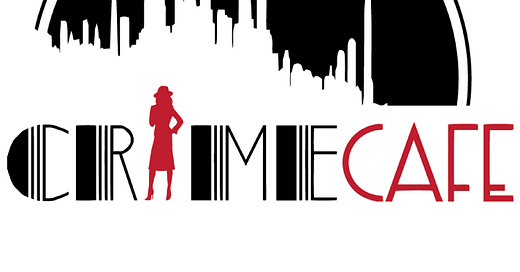



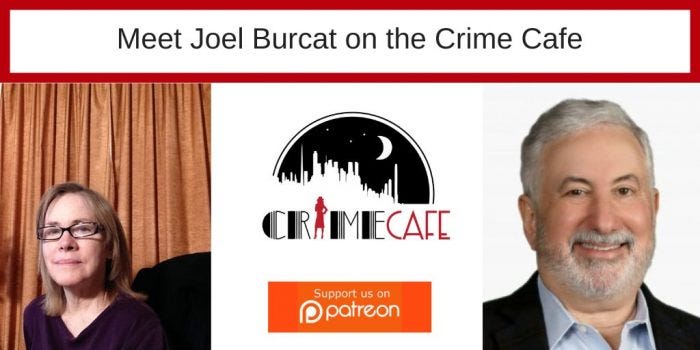


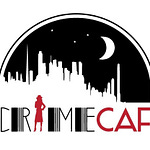
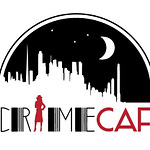
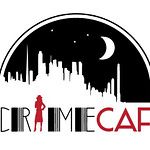
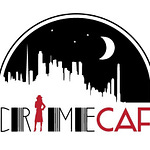

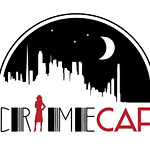


Share this post